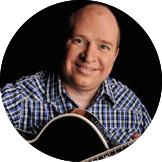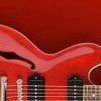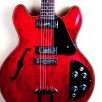
Triple-o
-
Posts
593 -
Joined
-
Last visited
-
Days Won
32
Content Type
Profiles
Forums
Gallery
Events
Articles
Blogs
Downloads
Community Map
Posts posted by Triple-o
-
-
Interesting style, not as easy as it looks, especially as the speed picks up. The chords also make a big difference, D A and G for example. My hand position stays pretty much the same for A and D, but the change to G requires arm movement for accuracy, so I don’t mute the A string. I guess I could play G with the E and D as the bass note. Playing it like the example in the acoustic article probably wouldn’t sound right.
https://www.youtube.com/watch?v=7ueeFKUO97g
https://www.youtube.com/watch?v=h4HdzobrH6A
https://acousticguitar.com/want-to-play-like-johnny-cash-learn-the-boom-chuck-rhythm-in-3-easy-steps/ -
A dead fret, it could just be a matter of a poorly dressed fret.
https://www.youtube.com/watch?v=UsmVB3R70Xs
-
How much wood can a Wejack chuck if a Wejack could....Well skip the tongue twister and try this finger twister.
https://www.youtube.com/watch?v=E6nZiBu6P_E
-
-
F# or G? Somebody has more free time than me. In the song hits the guitar is tuned down a whole step
-
-
The name might sound familiar, because when the Sho Bud factory was in Nashville Eric Clapton bought the guitar he named “blackie“ for about $200.00. Later Guitar Center bought it for $ 959,500. Clapton switched from Gibson to Fender, because of players like J. Hendrix.
This post is really about the ShoBud steel guitar.
https://www.youtube.com/watch?v=uoUTvvpciLM -
-
-
-
In the 1950’s, because of some legal action Fender had the “Nocaster”. Joe Bonamassa says his 1951 Nocaster is his favorite guitar. Today we know this as the....
-
-
Auto-tune software. I kinda new they could make corrections in a studio.I didn’t realize they could do with a mic at a live performance.
I think Cher was one of the first (since it was sometimes called the Cher effect) to use pitch control software.
-
-
-
-
I found this article to be interesting. Especially the chart with all the notes.
https://www.guitarlessonworld.com/lessons/learning-the-fretboard/
-
Want to play faster? 250 bpm, no problem.
https://guitar.com/news/gear-news/circle-guitar-anthony-dickens/
-
Amazon guitar invention, or so they say.
-
The year is 1947. Mel Bay was asked to write guitar instructional books for returning GIs (Galvanized Iron). I assume it was the “War Department” that was involved and the GI bill would help retuning vets buy the books. Mel approached 3 major publishers and was turned down, because guitar playing was on its death bed.
He then started his own publishing company. He traveled around the country selling his books and meeting thousands of guitar teachers.Elvis Presley probably played a big part in preventing the “death of the guitar” and helped the Mel Bay’s company become a major source of guitar instructional material.
Seems to me like the only business on the “death bed” were guitar manufacturers.The interest in learning and playing appears to have always been there.Just waiting for the internet.
I think if Mel’s son William, who took over the business in 1997, had the money, interest or vision, Mel Bay Publishing company might be a giant today or at least a major player like Hal Leonard Corp.
Who knows, a new cover on their books and some DVDs or online instructions to replace the teachers they once depended heavily on, they could still make a come back.They already have a ton of material on their shelves and it’s as good as most. There’s probably a thousand teachers on line that got their start using those Mel Bay Method Books.Today, YouTube teachers share 20 billion dollars a year with their on line guitar businesses. Ever watch Marty Schwartz? He’s pretty good, but did you know his income is a 6 figure number, that right $100,000+. Wonder how many on Guitar Tricks, Jam Play, True Fire bring in that much. Justin is probably another one rolling in the cash.
Well, back to practice. Yes, you’re right, Minuetto from Mel Bay method method books is on my music stand. But, my head is now spinning thinking about all that $$$$$$ and galvanized iron.
https://www.youtube.com/watch?v=IW7NUKG2DH4
-
 1
1
-
-
-
I always assume that when you played 3 or 4 notes, like double stops, (dyads) you just referred to them as triads or chords. I didn’t know there was such a thing as a triple stop or quadruple stop and that all stops are collectively known as “multiple stops”. I read on line that in guitar music there is no such thing as a triple stop, yet I am currently looking at a guitar music book that uses the term. I read that “stops” is a term that comes from the violin.
-
 1
1
-
 1
1
-
-
-
Singing about winding roads in Maryland ended up being the song “Take me Home Country Roads.” Denver and his friends had never been to West Virginia, but Maryland didn’t sound right nor did Massachusetts where they were living at the time. They chose W. Virginia because it sounded better. I always thought the song was out of place for John Denver,because his favorite state was Colorado.I didn’t realize two of his friends, Daroff and Nivert, struggling musicians, started writing the song in hopes of selling it to Johnny Cash. When Denver heard what they were working on he offered to help them clean up and finish the song. Denver sang the song at the “Cellar Door” in DC and it was a big hit. And the rest as they say is history.
Looks like a good fingerstyle song to practice, I am having a problem going from A to F#m. Fingerstyle has a way of bringing out all the imperfections, in fingering barre chords, but hopefully in time it will come. Take a look.





Guitar Showmanship
in Guitar Playing & Technique
Posted · Edited by Triple-o
I've seen photos that give the impression that Jimi Hendrix could play the guitar with his teeth. I have also read that he didn't and it was just a fake stage act. Nothing more than some Hammer-ons and pull-offs with his mouth near the strings. I find it hard to believe he could, so I say "Smoke and Mirrors".
https://www.youtube.com/watch?v=CiR36mDzqVI